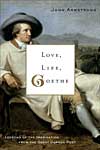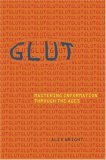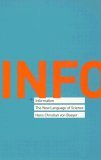July 26, 2007
Love, Life, Goethe: Lessons of the Imagination from the Great German Poet by John Armstrong
by John Armstrong
I don’t often read biographies, so this is not a book I would ordinarily pick up, but since it was there on my local library’s new book shelf, with the subtitle’s promise of “lessons of the imagination,” I took it home and found it to be very readable. (Nice short chapters for one thing.)

Goethe is seen as an example of the reconciliation of life and art; he is able to say that life is good, while still striving to develop himself. (‘I am not here simply to have a good time, but to devote myself to noble objects.’ p. 178)
Goethe is determined to bridge the gaps between creative art and what is called ‘the real world.’ For much of the nineteenth and twentieth centuries artists have withdrawn their sympathy from the normal conditions of comfortable existence. The artist is at odds with – and critical of ‘bourgeois life.’ …
Goethe’s immense hope was that there need not be – should not be – a spiritual loathing or artistic contempt for that life. Which, after all, is normal life, broadly speaking. If depth of thought, maturity of passion and grace of feeling are to be central to a society, these spiritual qualities have to coexist with the normal demands of life. And Goethe suggests more than coexistence; he is looking at the ways in which the discipline of ‘the real world’ – the demands of power and responsibility – might actually offer special opportunities for personal growth and development. (p. 101)
Another edition has the subtitle “how to be happy in an imperfect world.” Google Book Search page for this title has links to several reviews.
Comments (0)
- culture,happiness
July 21, 2007
To achieve holism we must try to connect up all the fragments of our different thoughts and draw them into a living whole, and in so doing we enrich the meaning of each individual element. ‘We are aware of a huge crowd of things; the soul can grasp extraordinarily diverse links between these things. Souls that have the inner strength to open up the world begin to organize these links, so as to think more easily; and they begin to take pleasure in putting two and two together and establishing connections between diverse elements of their world.’ (p. 307)
The above passage from Love, Life, Goethe: Lessons of the Imagination from the Great German Poet resonated unexpectedly with ‘Everything Is Miscellaneous.’
resonated unexpectedly with ‘Everything Is Miscellaneous.’
Comments (0)
- culture
July 17, 2007
 Everything Is Miscellaneous: The Power of the New Digital Disorder
Everything Is Miscellaneous: The Power of the New Digital Disorder
“As we invent new principles of organization that make sense in a world of knowledge freed from physical constraints, information doesn’t just want to be free. It wants to be miscellaneous.” (p. 7)
Knowledge was supposed to be a mirror of reality. It thus was either true or not true, end of story. But if knowledge includes metadata about how much and why we should believe it… Knowledge can’t be a literal read-off of the real because we’re too deeply involved in the world we’re trying to know…. Our knowledge of the world is an understanding that simultaneously assesses the quality and reliability of our understanding. (p. 218-219)
In the world after the Enlightenment, the cultural task was to build knowledge. In the miscellaneous world, the task is to build meaning… Knowledge’s new place will be in an ever-present mesh of social meaning…. But knowledge is now not our only project or our single highest calling. Making sense of what we know is the broader task, a task for understanding within the infrastructure of meaning. (p. 222)
website for the book
useful summary by Mark Bower
Google Tech Talk video
Comments (1)
- culture
July 8, 2007
In the recent book Glut: Mastering Information Through the Ages, Alex Wright defines information: “Information is the juxtaposition of data to create meaning.” (p. 10)
Alex Wright defines information: “Information is the juxtaposition of data to create meaning.” (p. 10)


I liked the definition given by Hans Christian von Baeyer in Information: The New Language of Science : “the transfer of form from one medium to another, or, the communication of relationships.” (p. 25).
: “the transfer of form from one medium to another, or, the communication of relationships.” (p. 25).
Richard Saul Wurman in Information Anxiety (I have the 1st ed. from 1989) suggests that information is relative to the person: “Information must be that which leads to understanding. Everyone needs a personal measure against which to define the word. What constitutes information to one person may be data to another. If it doesn’t make sense to you, it doesn’t qualify for the appellation.” (p. 38-39) From that perspective, the UC Berkeley project to measure “how much information” is really measuring data, or potential information.
(I have the 1st ed. from 1989) suggests that information is relative to the person: “Information must be that which leads to understanding. Everyone needs a personal measure against which to define the word. What constitutes information to one person may be data to another. If it doesn’t make sense to you, it doesn’t qualify for the appellation.” (p. 38-39) From that perspective, the UC Berkeley project to measure “how much information” is really measuring data, or potential information.
Perhaps data + meaning = information, and information + understanding = knowledge; then knowledge + experience = wisdom.
More:
Google search: “define: information”
A course on History of Information from UC Berkeley School of Information (Fall 2006) – with lecture podcasts, pdf files and links to some readings.
Comments (0)
- culture
July 4, 2007
TEDBlog recently posted a talk by Dan Dennett on memes, originally recorded in 2002.
Comments (0)
- culture
by John Armstrong






